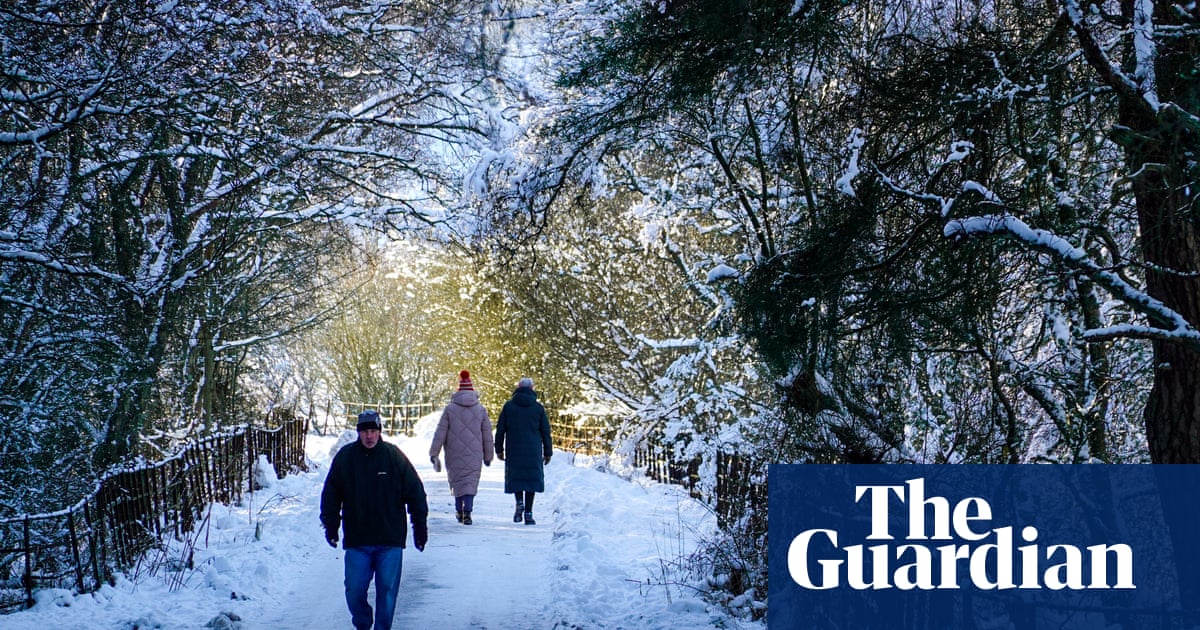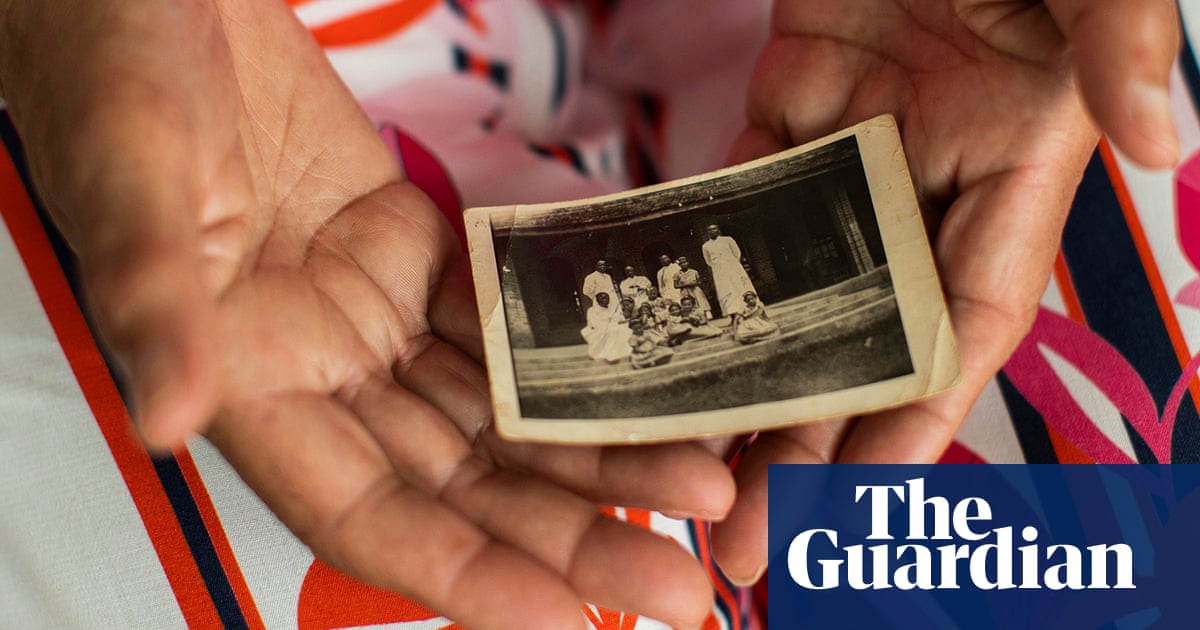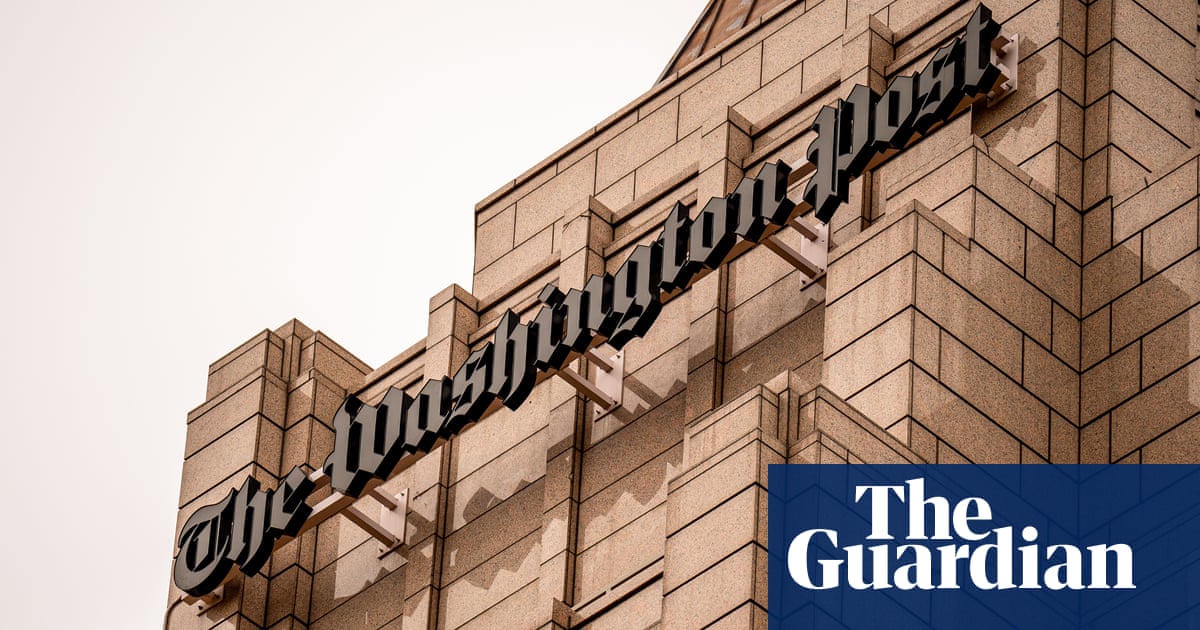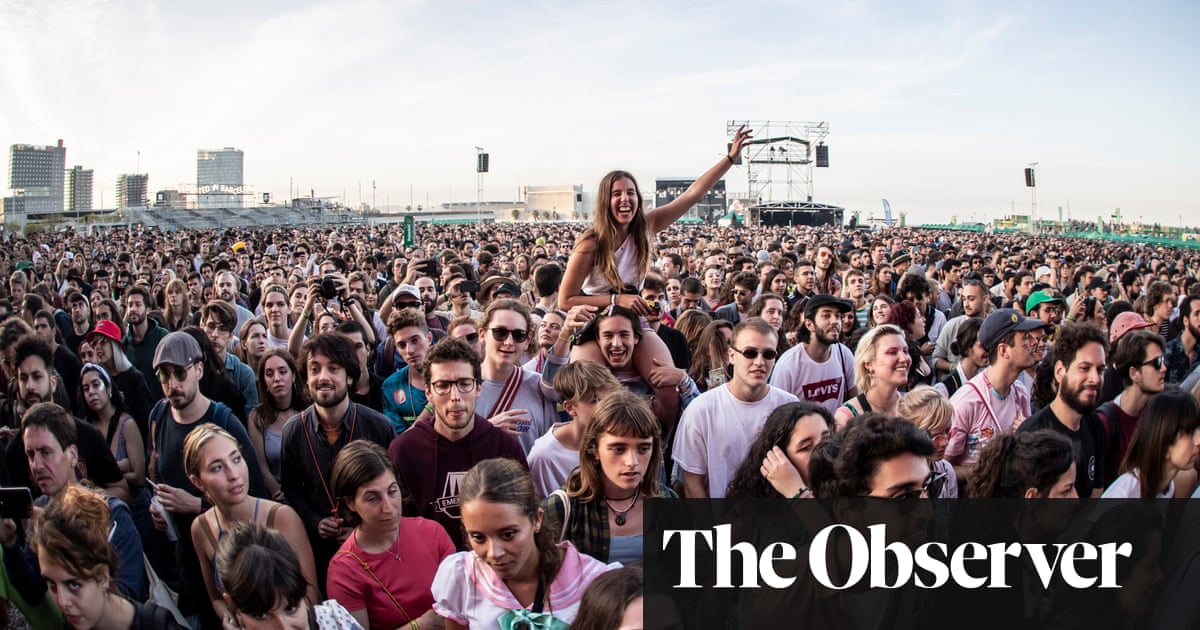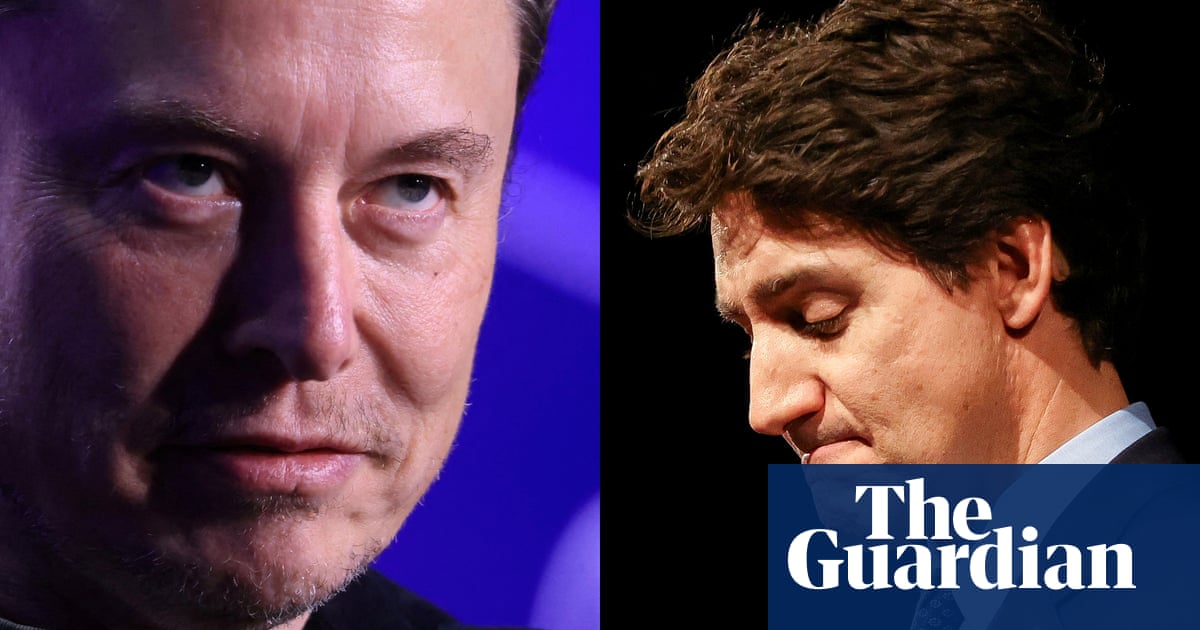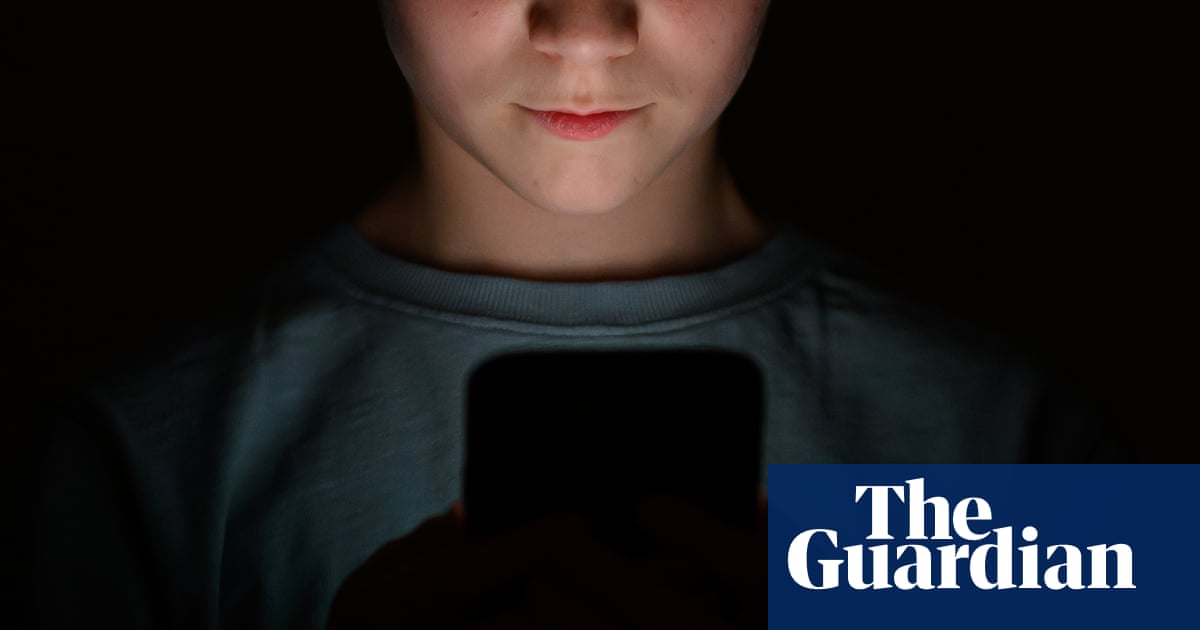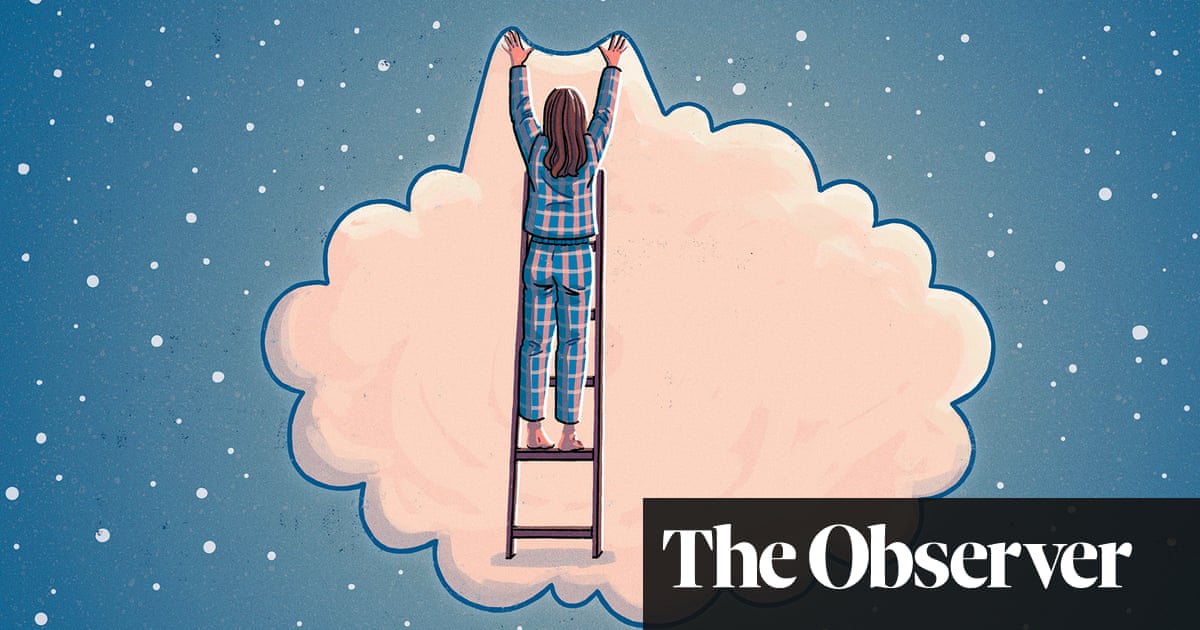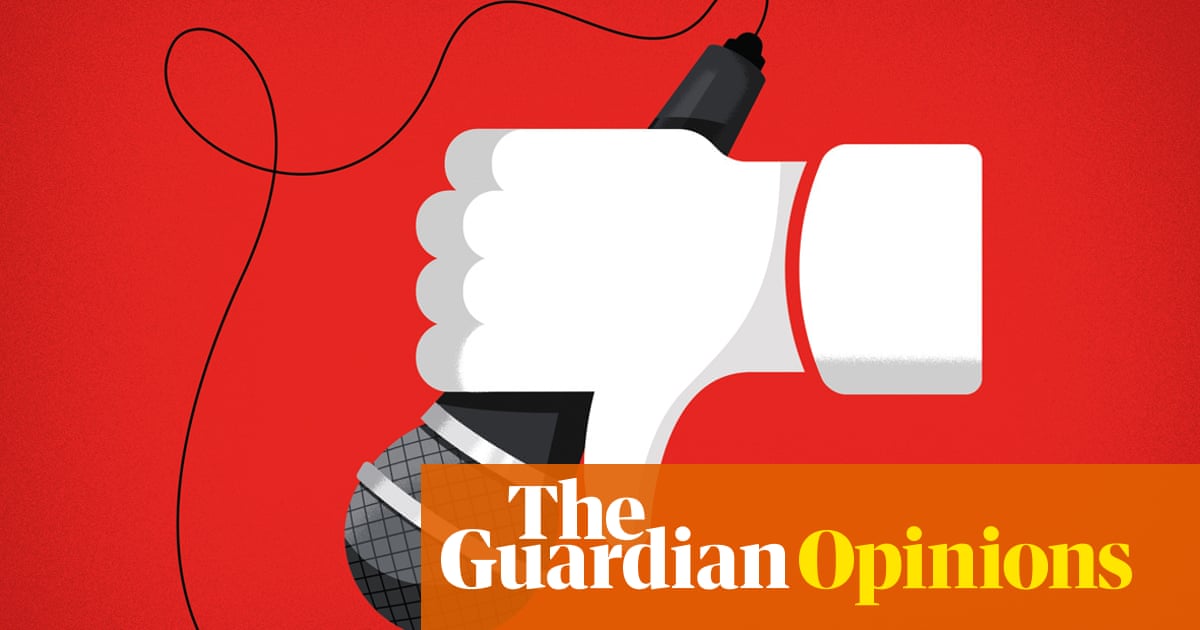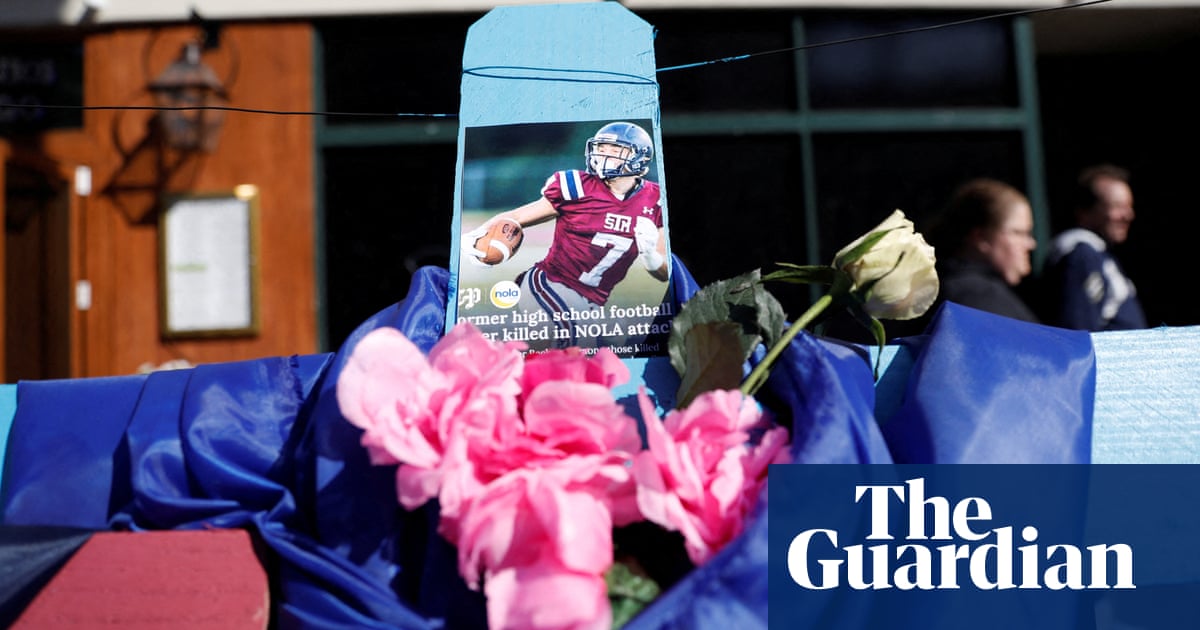

Colm Tóibín
Author of the award-winning Brooklyn (Penguin) and Long Island (Picador)
Colin Barrett’s Wild Houses (Jonathan Cape) and Richard Flanagan’s Question 7 (Chatto & Windus) would add excitement to anyone’s Christmas. They write stylishly, these two blokes; they offer a passionate engagement with the material. Barrett’s story is fiction; Flanagan’s book is an investigation of who he became and how. Me? Please give me Naked Portrait: A Memoir of Lucian Freud (Pan Macmillan) by his daughter, the novelist Rose Boyt. It has a brilliant first sentence: “Nothing had been discussed, I just presumed I would be naked.” And what follows is an intriguing story, like something from a complex modern folktale – a daughter refinding her father.

Samantha Harvey
Author of Orbital, winner of this year’s Booker prize
I’d like to give Evie Wyld’s The Echoes (Jonathan Cape) as a present. There is no better storyteller writing fiction in Britain today. The Echoes is everything you’d hope an Evie Wyld novel to be: humane, ambitious, innovating, captivating, funny, clever with never, ever a hint of pretension. In my stocking I’d like to find A Ballet of Lepers (Canongate) by Leonard Cohen. I’m a diehard Cohen fan, can’t help it; I might regret reading these early works, which will surely have dated, but to sneak a look at his young mind, the root system of what followed, is irresistible.

Rachel Clarke
Doctor and author of Dear Life, Breathtaking and The Story of a Heart (Abacus)
I’ll be gifting Raising Hare (Canongate), the tale of a Westminster hotshot floored by a leveret. When foreign policy adviser Chloe Dalton encounters the abandoned baby hare during lockdown, the improbable bond between them is so precisely drawn, I felt I could see the world through hare eyes – just beautiful. Second, I know how Sally Rooney divides critics – wildly successful young women tend to do so – but I defy anyone not to be moved by her stunning depiction of grief in Intermezzo (Faber). Loneliness, buried pain, our longing to be understood – it’s all here, unforgettably. I’m hoping to receive Anne Applebaum’s Autocracy, Inc (Allen Lane) – essential reading after the grim US presidential election results.

Jonathan Coe
Award-winning author of 16 novels, including What a Carve Up!, Mr Wilder and Me and The Proof of My Innocence (Viking)
For anyone who wants their faith restoring in British fiction, my Christmas present would probably be Tell (Fitzcarraldo) by Jonathan Buckley. Buckley has been pursuing his own quiet path for many years now, and this novel, an intriguing art world mystery told in the form of interview transcripts, is typically innovative and unsettling. For myself, I hope someone buys me There and Back (W&N), Michael Palin’s fourth volume of diaries. True, this evolving series is the ultimate comfort read, but it’s also much more than that: a social history of Britain spanning four decades, told with unflagging empathy and wit.

Anne Michaels
Canadian poet and novelist whose books include Fugitive Pieces and this year’s Booker prize-nominated Held (Bloomsbury)
In these agonising times of opinion displacing deep thought in public conversation, my gift book suggestion is a quiet antidote to despair: Over to You: Letters Between a Father and Son (Pantheon Books) by Yves Berger and the late John Berger. Even a single page brings the sanity of listening, looking, and a compassion that asks rather than answers. The love between father and son is a form of shelter in itself. Another book to gift is Benjamin Labatut’s The Maniac (Pushkin), for its hard look at what we’ve so willingly surrendered to our machines. And the book I would like to receive is Playing Possum: How Animals Understand Death by Susana Monsó (Princeton University Press), because I’ve been investigating mortality and consciousness for decades and I look forward to the Spanish philosopher’s perspective.

Andrew O’Hagan
Scottish novelist and nonfiction author whose books include Mayflies and Caledonian Road (Faber)
Michael Longley thinks like no one else, and the resulting poems replenish your senses and bring you home to yourself. This year’s Ash Keys: New Selected Poems (Jonathan Cape) is a book I will give to people I love, sure in the belief that the Longleyesque is now a beautiful mountain range, showing nature’s peaks and shadows, as well as our own. Another great highlight this year was the novel Munichs (Faber) by David Peace, a brilliantly written tale of the Manchester air disaster and the story of a lost Britain. I’m hoping someone sneaks into my stocking a copy of Sally Mann’s book Hold Still: A Memoir With Photographs (Penguin), which asks in a new way how personal history becomes art.

Kit de Waal
Novelist and nonfiction writer whose books include My Name Is Leon (Penguin) and the memoir Without Warning and Only Sometimes (Tinder)
Colin Barrett’s expert skills in describing big events in small-town Ireland is brilliantly on show in Wild Houses (Jonathan Cape). I just adored it and I’m desperate to spread the love. The second book I’d give is James (Mantle) by Percival Everett, such a brilliant retelling of Huckleberry Finn from the point of view of the enslaved Jim, resisting and rebelling against underestimation and oppression. A wise and profound book – and funny too. I would like to receive Yotam Ottolenghi’s Comfort (Ebury). I’ve got all his other cookery books which I read like novels, sitting up in bed, trying not to drool. Beautifully photographed and brilliant, simple recipes that make you look like you know what you’re doing.


Salman Rushdie
Award-winning novelist and nonfiction writer whose latest book is the memoir, Knife (Vintage)
My favourite novel this year was James (Mantle) by Percival Everett. By giving the runaway Jim from Huckleberry Finn his own voice (or voices) and his dignity – James, not Jim – he adds a dimension that’s missing from the original, and, I think, improves on it. I loved and admired Hanif Kureishi’s memoir Shattered (Hamish Hamilton), in which he brilliantly faces a physical catastrophe with honesty, courage, and his characteristic dark humour. And if I find this year’s Booker winner, Orbital (Vintage), by Samantha Harvey in my stocking I’ll be very pleased. I’m obsessed by space travel myself, and this is a writer I don’t know and I should clearly change that.

Sara Collins
Author of The Confessions of Frannie Langton (Penguin) and one of this year’s Booker prize judges
The book I am going to gift this year is You Are Here (Hodder & Stoughton) by David Nicholls, a love story between two people who have given up on love. It tackles existential questions through a thrillingly intimate lens. To balance that out with some nonfiction, I’ll also be wrapping several copies of Question 7 (Chatto & Windus), Richard Flanagan’s masterpiece of a memoir that stitches together a collage of such astonishing, agonising links and associations I haven’t been able to get it out of my head. Meanwhile the book on the top of my own wish list is The Land in Winter (Hodder & Stoughton) by Andrew Miller, because it’s worth reading anything he writes.

Tessa Hadley
Author of Late in the Day, Free Love and The Party (Jonathan Cape)
I’ll give my daughter-in-law Colm Tóibín’s Long Island (Picador), which is that rare thing, a sequel that works as well as its original. Eilis from Brooklyn is thoroughly grown-up now. She’s such a living creation: distinctive, guarded, forceful, watchful. I’ve already given my brother Shannon Vallor’s lucid and fascinating The AI Mirror (OUP USA), debunking the tech bro hype, alerting us to those mundane aspects of the digital future we really ought to be afraid of. What I want for myself is Alan Hollinghurst’s Our Evenings (Picador); I listened to him read an extract on a podcast and loved every delicate, funny, exact word.

Mick Herron
Author of the Slough House thrillers, adapted for television as Slow Horses
Nick Harkaway’s dive into his late father’s world in Karla’s Choice (Viking) is the perfect gift for spook-loving readers: George Smiley is back and all is awry with the world, as murky doings on the streets of Primrose Hill reverberate through the Circus’s secret corridors. Harkaway’s triumph lies in pulling off the neat trick of being faithful to the original vision without producing a retread of familiar tropes. As for my own stocking, Jonathan Coe has a new novel out, which is always a cause for celebration. The Proof of My Innocence (Viking), it’s called. Santa has been informed.

Clare Chambers
Author of 10 novels including Small Pleasures and Shy Creatures (W&N)
To the bookish and non-bookish alike, I’ll be giving Simon Mason’s The Case of the Lonely Accountant (Riverrun), a short, ingeniously plotted missing-person mystery with a provincial English setting and an appealing atmosphere of Maigret-ish melancholy. If I’m feeling generous I’ll also throw in Charlotte Wood’s quietly commanding Stone Yard Devotional (Sceptre), about a woman in the grip of a personal crisis who takes refuge in a community of nuns in outback Australia. Profound reflections on guilt, memory and forgiveness ensue. Loved ones: my mood on Boxing Day will very much depend on whether someone has bought me Our Evenings (Picdor) by Alan Hollinghurst.

Kevin Barry
Author of the novels Beatlebone, Night Boat to Tangier and The Heart in Winter (Canongate)
The driving rhythms and propulsive narrative force of David Peace’s novels are among the glories of contemporary fiction and Munichs (Faber), his telling of the 1958 Manchester United air disaster, has been a book worth waiting for. An obsessive, hard-won narrative, emotional but coolly rendered, it’s as good as anything he’s written. In Cathy Sweeney’s Breakdown (W&N), a woman walks out of her house in the Dublin suburbs and into the world and tries to throw off the shackles of her life. A brilliantly controlled novel – this is a writer with great talent and a use for it. A worthy companion read to Miranda July’s terrific All Fours (Canongate). For my own stocking, I’ve been berated long enough for my abject ignorance in never having read Janet Frame, so it’s time to start with The Edge of the Alphabet (Fitzcarraldo).

Taffy Brodesser-Akner
American author of Fleishman Is in Trouble and Long Island Compromise (Wildfire)
Maybe it’s the election — perhaps you heard we had one in the US — but the only thing that consumes my thinking lately is making sense of the world. And this wild, deranged country I live in only made partial sense to me before I read Wright Thompson’s new book, The Barn (Hutchinson Heinemann), about the barn in Mississippi where Emmett Till was murdered. Wright (who is a friend of mine) argues that Till’s murder is the sin America can’t get past, and the honest conversation we can’t have. Help Wanted (Serpent’s Tail), Adelle Waldman’s second novel, held me from its first page. Through the trials of the employees of a discount department store, Waldman is able to hold in her hands every nuance of working life and gently transmit, through narrative tension and beautifully rendered heartbreak, the exact way that capitalism turned on the very lives it was there to boost and instead corroded. For myself, I read a Guardian review of The Unfinished Harauld Hughes (Faber) by Richard Ayoade. Just the description made me shriek with delight. I cannot wait to read it.

Caroline Lucas
Former leader of the Green party and the author of Another England (Hutchinson Heinemann)
Robin Wall Kimmerer’s The Serviceberry: An Economy of Gifts and Abundance (Allen Lane) is the perfect Christmas gift – a beautiful meditation on abundance, reciprocity and community, drawing inspiration from indigenous wisdom, and inviting us to reimagine what we value most. Few writers capture the beauty and pathos of everyday lives as well as Elizabeth Strout, so I’ll also be wrapping up her latest in the Lucy Barton series, Tell Me Everything (Viking) – an elegy to lost possibilities and the redeeming power of love. And in my own stocking I’d love to find Elif Shafak’s There Are Rivers in the Sky (Viking) – it looks like a glorious feast of novel, from one of the world’s most exhilarating storytellers.

Nick Harkaway
Author of Karla’s Choice (Viking), a new story about the spymaster George Smiley, created by his late father, John le Carré
The first book I will be gifting is Solvable (University of Chicago Press) by Prof Susan Solomon: an uplifting reminder – from someone who knows how to do it – that we can beat the climate crisis. As the 1.5C limit increasingly looks like yesterday’s lost hope, tomorrow can still be saved. Meanwhile, Attica Locke has produced another must-have, the dazzling Guide Me Home (Profile) – compelling detective fiction with plenty to say about Trump’s America. And Santa: I’d like The Saint of Bright Doors (St Martin’s Press) by Vajra Chandrasekera. “Divine revolutionaries and transcendent cults against the mundane struggles of modern life.” Sold: one coral reef of the mind, please.


Olivia Laing
Writer, novelist and cultural critic. Her latest book is The Garden Against Time (Picador)
This year saw the publication of a stunning new edition of Peter Hujar’s 1976 cult classic Portraits in Life and Death (WW Norton), which combines photographs from the Palermo catacombs with images of Hujar’s own New York demi-monde, including William Burroughs, Fran Lebowitz and John Waters. No one took photographs like Hujar. Sensuous and sensitive, this is a real masterwork. Clair Wills’s family memoir Missing Persons (Penguin) was fascinating on exile and how history plays out through the generations. It made me think completely differently about the diaspora and what being Irish really means. As for my stocking: Ali Smith’s Gliff (Hamish Hamilton), please.

Rumaan Alam
Author of Leave the World Behind and Entitlement (Bloomsbury)
A novel I loved this year (one I am confident many people on my Christmas list will also feel strongly about) is Alan Hollinghurst’s Our Evenings (Picador), an engrossing book about art, sex, family, friendship – life itself, in short. A very different but no less thrilling gift is Julia Phillips’s Bear (W&N), a realist story with a twist of magic, a beguiling companion for those last quiet days of the year. My own stocking will be easy to fill this season, as two of my very favourite writers have new novels out: Louise Erdrich (The Mighty Red, Corsair) and Richard Powers (Playground, Hutchinson Heinemann).

Lola Young
Crossbench peer and author of the memoir Eight Weeks (Fig Tree)
The book I most want to give is The Strangers: Five Extraordinary Black Men and the Worlds That Made Them (Hamish Hamilton) by Ekow Eshun. It’s one for the intellectually curious. Eshun mixes biography and imagination to craft essays based on the lives of five Black men from history. Interspersed with thoughts about Eshun’s own experiences as a Black man, the stories cross generations, and form part of a wider narrative about race, culture and historical amnesia. Then there’s Death at the Sign of the Rook (Doubleday) by Kate Atkinson. Trust Atkinson to inject new life into the “murder mystery weekend” setting. Her humour and the presence of Jackson Brodie mean that the cliches of the genre are regularly and wittily subverted. The book I’d like to receive is Butter (4th Estate) – a cult thriller from Japan and based on actual events – by Asako Yuzuki. Translated by Polly Barton, it tells the story of a woman who commits a series of murders, but with recipes threaded throughout the narrative. Intriguing.

Elif Shafak
Novelist whose most recent book is There Are Rivers in the Sky (Viking)
I loved reading Kaveh Akbar’s fabulous novel, Marytr! (Pan Macmillan). It is playful, soulful, kaledeiscopic, honest and profoundly moving. It is also wholly original, and the writing is brilliant, full of chutzpah and heart. Another book that I’d love to put inside everyone’s Christmas stocking is Shattered (Hamish Hamilton) by Hanif Kureishi. It is an incredible and wise and unflinching meditation on both the vulnerability and the resilience of being human. I think when you read it, it will transform the way you connect with life – and love. The book I would like to find in my own stocking is We Will Not Be Saved: A Memoir of Hope and Resistance in the Amazon Forest (Headline) by Nemonte Nenquimo. Born into the Waorani tribe in the Amazon rainforest, Nenquimo has dedicated her life to defending indigenous cultures and biodiversity. She is astonishing, and I find her voice deeply important not only for climate change activism and awareness, or for eco-feminism, but also for anyone who cares about ancestral heritage, the complexity of history and the stories of the silenced.


Michael Palin
Actor, comedian, writer and broadcaster. His latest book is Great Uncle Harry (Penguin)
I’d give Simon Barnes’s How to Be a Bad Botanist (Simon & Schuster) to anyone interested in what we take for granted, the plants around us. He writes as an everyman, not an expert, which makes the book accessible and appealing. I know plenty of people who love Russia and hate what Putin’s doing to it, and I’d send them BBC foreign correspondent Sarah Rainsford’s Goodbye to Russia (Bloomsbury), her eloquent elegy to a country she knew so well. I’ve become a a bit obsessed with another country that turned bad and I’d be very grateful to anyone who gave me Vertigo: The Rise and Fall of Weimar Germany (WH Allen) by Harald Jähner.

Irenosen Okojie
Author of Nudibranch and Curandera (Dialogue)
I’ll be giving Tommy Orange’s tremendous Wandering Stars (Harvill Secker) as presents. It’s unforgettable, often devastating, exploring generations of a Cheyenne community. I love its kaleidoscopic sensibility, its big heart, anger and audaciousness. Another must is wrapping up copies of Laura Fish’s Lying Perfectly Still (Fly on the Wall Press). Fish sadly died this year but this complex study of an aid worker returning to South Africa is a wonderful reflection of her gifts. If Santa’s listening, Yael Inokai’s A Simple Intervention (Peirene Press) will be in my stocking. It’s a fascinating mix of social commentary and personal repercussions from an exciting talent.

Tash Aw
Malaysian-born author of The Harmony Silk Factory and Five Star Billionaire (4th Estate)
Alan Hollinghurst’s Our Evenings (Picador) guarantees sheer reading joy – a tender and sometimes angry portrait of Britain over the past half-century, totally immersive but so intimate that you will barely notice its quasi-epic scale. Fitzcarraldo’s English translation (by Frank Wynne) of Jean-Baptiste Del Amo’s The Son of Man – about dysfunctional parent-child relationships – would be good for anyone sheltering from family squabbles. I’m living in Berlin this year, in Christopher Isherwood’s neighbourhood, so Katherine Bucknell’s majestic biography of him, Inside Out (Chatto & Windus), would be a most welcome gift.

Yuan Yang
Labour MP for Earley and Woodley and the author of Private Revolutions (Bloomsbury Circus)
Josephine Quinn’s How the World Made the West (Bloomsbury) would be the perfect gift for my mother, who has long been fascinated by the meeting of eastern and western ancient civilisations. This book traces and blurs the boundaries of the two. For my brother, I’d give Great Britain? How We Get Our Future Back (Bodley Head) by my fellow Labour MP, Torsten Bell. Like me, my brother studied economics, and I think this book would spark some brilliant dinner-table discussions. For myself, it’s David McWilliams’s Money: A Story of Humanity (Simon & Schuster). I already have several books on the history of money – but none written by the founder of an economics and comedy festival.

William Dalrymple
Award-winning historian whose books include The Last Mughal, Return of a King, The Anarchy and The Golden Road (Bloomsbury)
I’ll be gifting The House Divided (Profile) by Barnaby Rogerson, which traces how the great 16th-century confrontation between the Ottomans of Turkey and the Safavids of Iran cemented what had previously been a much more porous division. Rogerson is an eloquent and always fascinating guide to one of the crucial turning points of Persian history: few British authors understand the Middle East so intimately and well. Antony Loewenstein is one of the most fearless voices writing on how Israel subjugates the Palestinians. The Palestine Laboratory (Verso) is an essential gift for anyone wishing to understand the horrific story of how Israel has built an entire tech economy on the spyware, drones and gruesome hardware that makes it possible for 7 million Israelis to keep 5.5 million Palestinians suspended in stateless serfdom. The book should be read alongside two important photographic books documenting Palestinian life: Ten Days in Gaza (Hood Hood Books) and Against Erasure: A Photographic Memory of Palestine Before the Nakba (Haymarket). Both represent important acts of remembering of a world now utterly destroyed, making these images even more poignant now than they were when they were first taken. Finally, I’d like to receive a copy of Disrupted City (The New Press), Manan Ahmed Asif’s learned and lyrical elegy for the great city of Lahore: a book that is both nostalgic and scholarly, written by one of the most outstanding historian-flaneurs of South Asia.

Kaliane Bradley
Author of The Ministry of Time (Hodder & Stoughton)
I’d like to press a copy of Private Rites (4th Estate) by Julia Armfield into everyone’s hands. For frighteningly (and hilariously) plausible depictions of late capitalist life under total climate breakdown, it can’t be beaten; and its profundity and honesty in realising the emotional worlds of its characters needs more words than I have here to describe. For myself, anything from Marie-Helene Bertino’s backlist; I read Beautyland (Picador) this year and was rapt. Bertino’s weightless, joyful prose style nevertheless freights huge emotion. As much about acceptance and community as it is about yearning and divergency, it’s a wonderful novel about making a life on Earth.

Attica Locke
American writer whose books include Black Water Rising, Bluebird, Bluebird and Guide Me Home (Viper)
James (Mantle) by Percival Everett is more than a retelling of a classic; it is a reclamation, somehow both a homage and a rebuke – a retelling that centres a man we only previously accessed through the lens of a child. Everett’s is a wry, wise, funny and touching book that I would gift to strangers on the street if I could. So too In My Time of Dying (4th Estate) by Sebastian Junger, a journalist’s chronicling of his own near-death experience. Rather than harrowing, the book is deeply life-affirming as it ponders life’s big questions: Why are we here? And where are we going when we die? The writing is sharp, humble and quietly powerful. I can’t express how much peace this book brought me. I would like All Fours (Canongate) by Miranda July in my stocking. It has been all the rage among women of a certain age, recommended to me no less than five times. I’ve heard it’s about menopause and wild sex. “Say less,” as the kids say. I’m in.

Ferdia Lennon
Author of Glorious Exploits (Fig Tree), winner of the Bollinger Everyman Wodehouse prize for comic fiction
Kevin Barry’s The Heart in Winter (Canongate) is a book I plan on placing in several Christmas stockings. It’s a love story and a western that has echoes of Deadwood yet always remains quintessentially a Barry novel and, as such, is brilliant. For my own stocking, I’d love to find Al Pacino’s autobiography Sonny Boy (Century). Growing up, I was a little obsessed with Pacino films, especially those from the 1970s. Godfather I and II, Serpico and Dog Day Afternoon are just some of my absolute favourites, and I can’t wait to dig into the story of the man himself in his own words.

Laurent Binet
French writer and academic whose books include HHhH and Perspective(s), out in the UK in February (Harvill Secker)
Under the Christmas tree, I wish to find Lev Grossman’s novel, The Bright Sword (Penguin). Partly because I recently enjoyed watching with my nine-year-old son a French medieval fantasy comedy TV series called Kaamelott, which is based on the Arthurian legends. Also, because I have always liked modern-day sequels to epic literature – I am thinking myself about writing one some day – and Grossman’s book sounds superb. Speaking of swords and blades, I’d like to give to those around me as a present Salman Rushdie’s latest book, Knife (Jonathan Cape), because what has been happening to him since 1989 is still a scandal whose magnitude has never been sufficiently measured.

Sophie Elmhirst
Author of Maurice and Maralyn (Chatto & Windus)
I’ll give Toy Fights (Faber) by Don Paterson, surely the funniest memoir ever written, and Stone Yard Devotional (Hodder & Stoughton) by Charlotte Wood, which is a beautiful, questioning novel, with ideally gruesome parts (nothing says Christmas like a plague of mice). And I’d like to be given V13 (Fern Press) by Emmanuel Carrère, please.

Tommy Orange
American author of There There and Wandering Stars (Harvill Secker)
Colored Television (Dialogue) by Danzy Senna is the book I will be gifting to people, not only because the book itself is a gift, but because anyone who loves reading will love this book. I read it in one sitting. There is no one else who writes like Senna. In all her books she tackles so many different subjects, all the while telling a story with characters so real and compelling you never think about how many ideas are being developed, and discussed, only that you want to find out what happens next, and how the ideas and the characters and the story will coalesce, all the way up until the last page, when you won’t want it to have to end. For myself, Mother (Penguin) by MS Redcherries is the book I would want to be given. It is written by someone from my tribe [the Cheyenne and Arapaho tribes of Oklahoma] and I will never get enough of my people writing about my kind of people. This is an incredibly powerful book of poetry that is also fiction but it is so real, and singular, as to defy definition, and I defy anyone to read it and come away unchanged.

Gillian Anderson
Actor and the author of Want: Sexual Fantasies (Bloomsbury) by Anonymous
I loved Dr Jen Gunter’s Blood: The Science, Medicine and Mythology of Menstruation (Piatkus), a powerful nonfiction “period piece”, which aspires to give power back to women through education. Too often, a woman’s period is viewed as her own personal curse. The effects of periods are either ignored or resoundly mocked. This title sets the challenge for another look. A book for me under the tree? I have already ordered the 2024 Booker prize winner – Orbital (Jonathan Cape) by Samantha Harvey, about astronauts exploring the furthest reaches of space – for my own stocking.

Stephen Fry
Actor, broadcaster and writer. His latest novel is Odyssey (Michael Joseph), the final part of his Greek myths series
The first book I’d give is Roger Lewis’s Erotic Vagrancy (Quercus) – the story of Elizabeth Taylor and Richard Burton’s amour fou. It’s huge and compendious but so stunningly well-written and filled with such eye-popping and extraordinary details, accompanied by such penetrating and hilarious asides… well, I’ve taken longer to read some novellas. The second is The Wide Wide Sea (Michael Joseph) by Hampton Sides. It’s the story of Captain Cook’s third voyage. Extraordinarily compulsive and fascinating on every page, it combines the satisfaction of a Patrick O’Brian or CS Forester maritime blockbuster with the insights and revelations of a true historian. I felt it somehow told me more about the making of the modern world than any book I had read for ages. And this year’s Booker winner Samantha Harvey’s Orbital (Jonathan Cape) has been recommended to me on too many sides for me to doubt that it would be a very welcome neighbour to the tangerine in my stocking.
-
To browse all of the Observer’s best books of 2024 go to guardianbookshop.com. Delivery charges may apply

.png) 1 month ago
8
1 month ago
8


